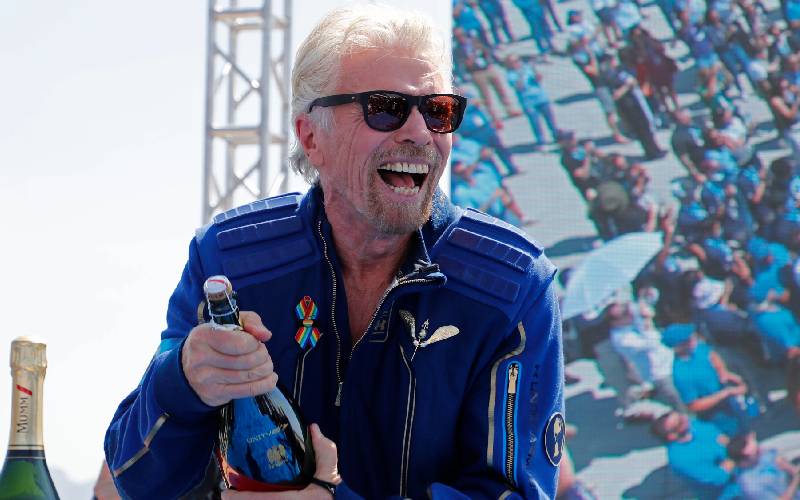×
The Standard e-Paper
Smart Minds Choose Us

Billionaire entrepreneur Richard Branson wears his astronaut's wings after flying with a crew in Virgin Galactic's passenger rocket plane VSS Unity to the edge of space. [Courtesy]
For decades; invention, innovation and technological advancement have been largely tied to State machinery.